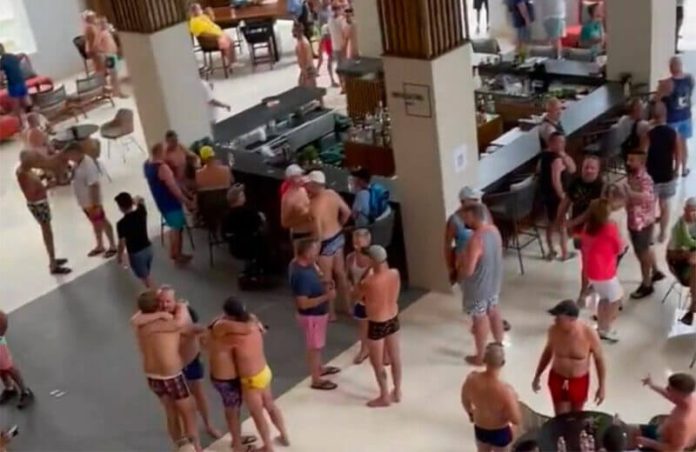Fearing that recent incidents of violence in Quintana Roo will have a negative impact on the tourism industry, business and tourism organizations have called on authorities to ramp up security in the Caribbean coast state.
In the wake of attacks in Puerto Morelos and Tulum that terrorized tourists and left two foreign women dead in the latter destination, three organizations warned that more needs to be done to improve security for residents and tourists.
Asserting that there is a “fierce and ruthless” turf war between competing drug gangs that operate in Quintana Roo – including on the state’s beaches, the Hotel Association of Cancún, Puerto Morelos and Isla Mujeres urged municipal, state and federal authorities to carry out “firm and forceful actions” to combat insecurity in tourism destinations.
Association official Jesús Almaguer Salazar said the presence of federal security forces needs to be bolstered to deter violence.
“We appeal to the good will of the president. The navy has shown that it can control these kinds of situations,” he said. “… The presence of an elite navy corps in the state that supports [local] authorities would be significant.”
Abelardo Vara, a hotel owner and former president of the Cancún hotel association, claimed that the federal government’s so-called abrazos, no balazos (hugs, not bullets) security approach – which favors addressing the root causes of violence over combating it with force – has failed and criminal groups have been allowed to flourish.
“It’s out of hand. The hugs haven’t worked,” he said. “Being honest, they haven’t allocated sufficient resources to control insecurity,” Vara added. “… Every day you find [dead] people in bags, dismembered people.”
The Caribbean Business Coordinating Council (CCEC) also called for security to be bolstered in Quintana Roo. It warned that incidents such as the shooting on a Puerto Morelos beach last Thursday that left two presumed drug dealers dead and the attack in a Tulum restaurant/bar late last month that claimed the lives of a a German woman and an Indian woman could cause people to cancel their plans to travel to the Riviera Maya. It is an outcome that would undermine the region’s recovery from the sharp pandemic-induced downturn.
The CCEC urged all levels of government to work together with citizens’ groups on a joint strategy to combat the criminal groups that “do so much damage to our organization.”
The executive president of the Quintana Roo Vacation Clubs Association also said that coordination between municipal, state and federal authorities is needed to effectively tackle the crime problem but emphasized that the support of the army and navy is paramount.
Miriam Cortés Franco described security as the most sensitive issue for the tourism sector, adding that her organization has fielded numerous calls from people asking whether Quintana Roo is a safe place to visit.
She noted that a new military base – inaugurated by former president Enrique Peña Nieto in late 2018 – was built just north of Cancún, but lamented that it hasn’t been used since 2019 because the government redeployed troops to other parts of the country to stem the flow of migrants.
Cortés said that tourism destinations in Quintana Roo are very attractive to criminal groups, which are often involved in extortion in addition to drug trafficking and street-level dealing. For that reason, greater federal support is needed to combat crime, she said.
Quintana Roo was the 18th most violent state among the 32 federal entities in the first nine months of the year with 495 homicides, according to federal data.
According to the state Security Ministry, at least six criminal groups operate in the Riviera Maya, a coastal region that includes Cancún, Playa del Carmen and Tulum. They include the Jalisco New Generation Cartel, the Sinaloa Cartel and the Old School Zetas.
With reports from Reforma and El Economista
